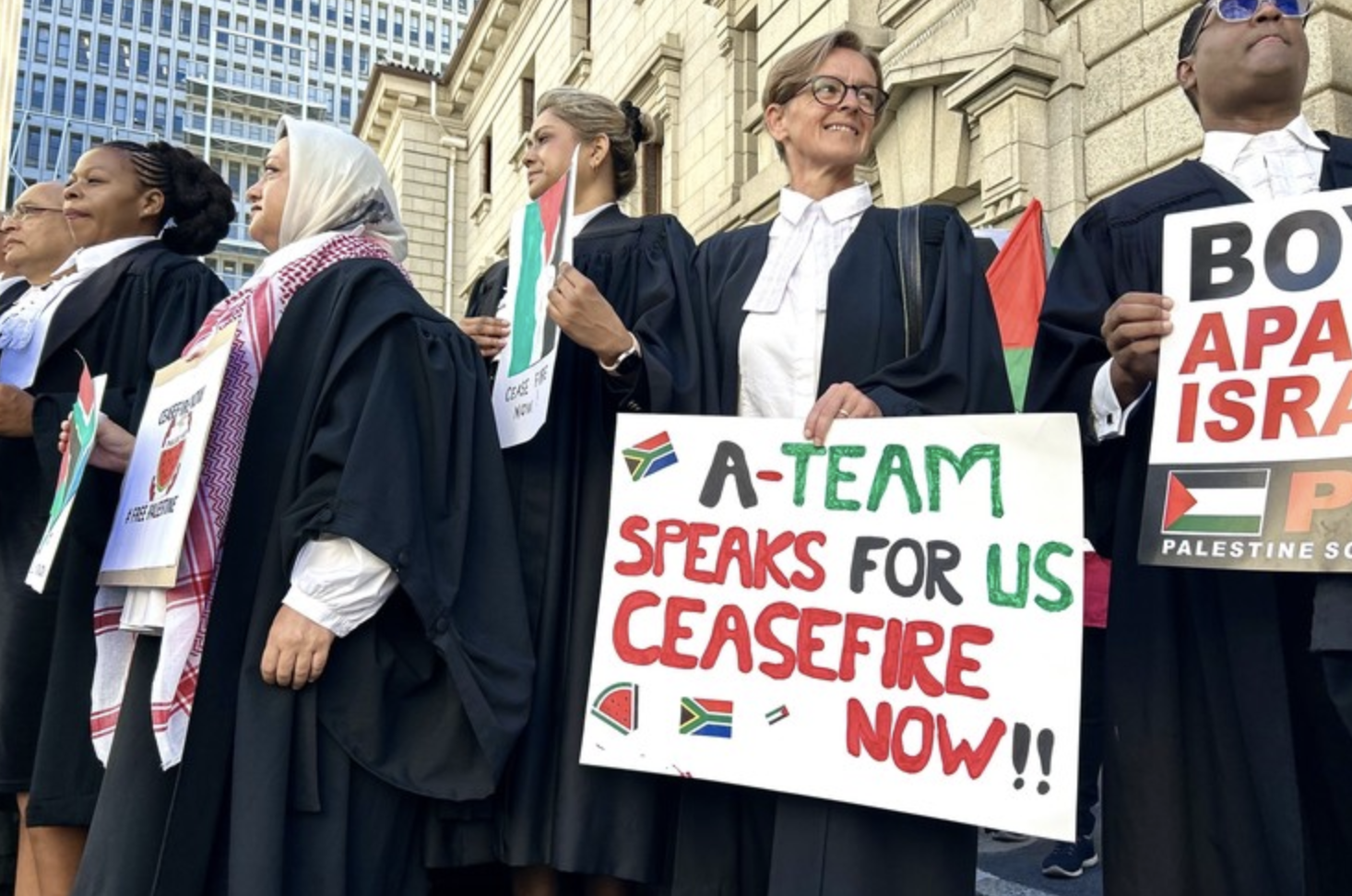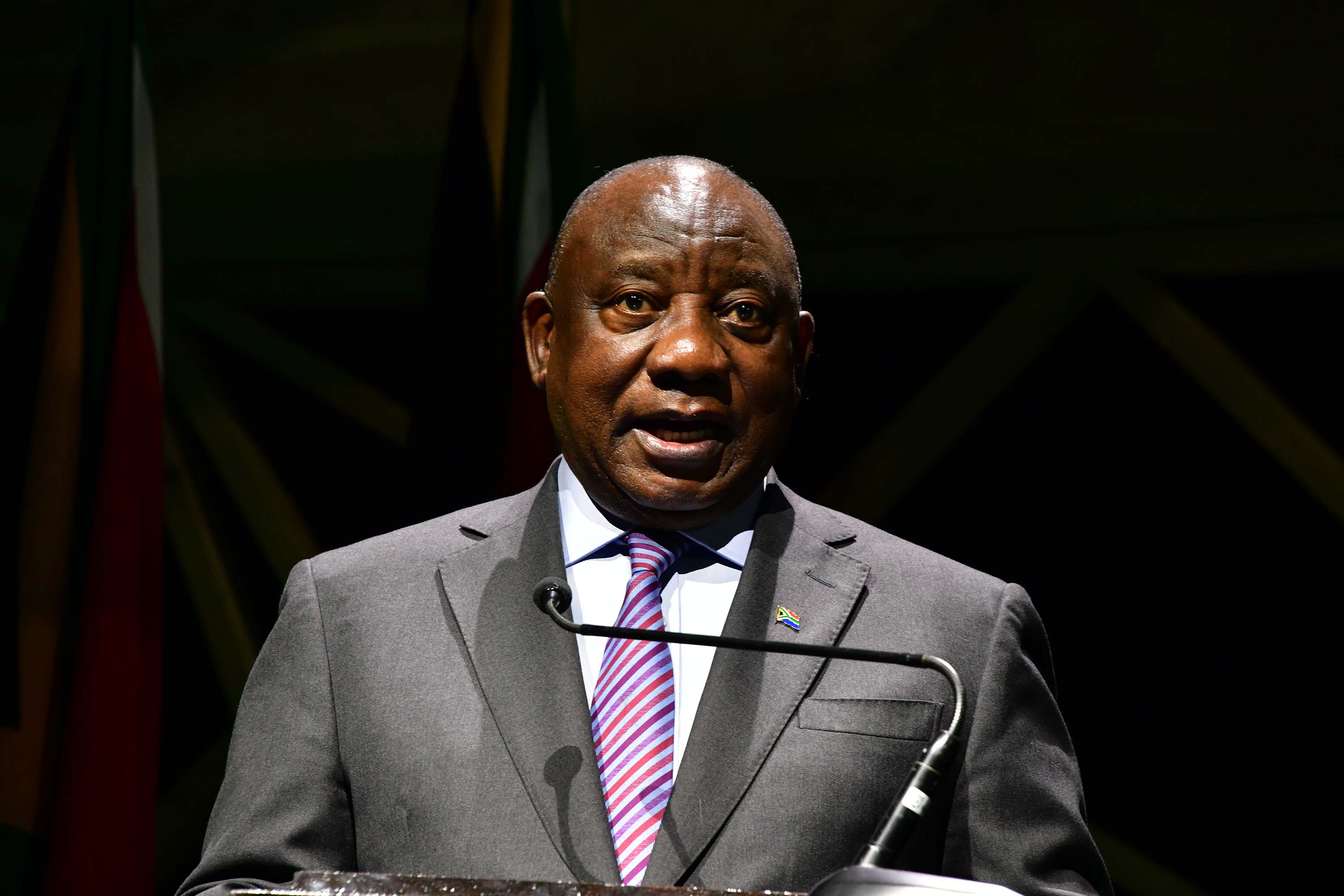News
SA’s ICJ Action — the Critical Problem of a Populist Foreign Policy
South Africa’s action at the International Court of Justice will cost the country much more than it will get out of it. It will place South Africa among the pariahs and will make investing in SA a more radical, less certain and riskier act.

Research Director, The Brenthurst Foundation

Director, The Brenthurst Foundation

South Africa has finally shed its foreign policy schizophrenia, of going steady with the West while engaging in occasional heavy petting with Caracas, Cuba and Putin’s Russia.
Instead of trying to balance the need to maintain a steady state of investment inflows and ensure trade access with rich markets with, on the other hand, more radical impulses including a desire to change (while blaming) the world, its support of Russia over Ukraine and now its action at the International Criminal Court of Justice (ICJ) has exposed the African National Congress.
The ruling party is clearly no friend of liberal values.
New directions and changing relationships are of course the prerogative of governments. Its new populist course may even prove to be fairly popular with the Tik-Tok left, but this constituency of virtue-signalling airheads should not be mistaken for a base with any serious political heft.
It has doubtful legal merit, which the ICJ will assess this week, though the outcome will likely be driven by politics in any event. It will indubitably be celebrated in parts of the BRICS, especially in those countries too savvy to launch such an action themselves, mindful of the inevitably costly consequences.
Little impact
The impact of this intervention is likely to have little effect on reality, whatever the ruling.
The ANC’s friends in Hamas will continue to be pounded by Israel — no country has given up its right to protect itself in exchange for virtue signalling, and Israel is unlikely to become the first.
At the end of the day, to use a South Africanism, the ICJ action will cost South Africa much more than it will get out of it.
Domestically, it will not improve the circumstances of nearly half of the workforce, which is stuck unemployed, nor will it raise South Africa’s pedestrian rate of economic growth. To the contrary. It will place South Africa among the pariahs and will make investing in SA a more radical, less certain and riskier act.
As such it will not make South Africa safer to do business with, and will in the process probably reduce the life chances of the average South African.
South Africa’s coming out in its foreign policy — effectively supporting Russia over Ukraine and now Hamas via the ICJ action against Israel — is not an action founded fundamentally on leftist ideological solidarity.
Russia today is hardly leftist. Rather, it is elite nationalist. Hamas is many things, as is Hezbollah and the backers of both in Iran, but leftist does not spring to mind.
They are not consistently anti-colonial instincts either. Russia’s treatment of Ukraine is quite the opposite.
Struggle loyalties alone also did not drive this foreign policy direction. If it had, human rights should be up there on the list of concerns. That is not the case in SA’s cosy relations with some allies in the Middle East, Asia and Africa, where human rights (and especially minority and gender rights) are not exactly top of the agenda.
It is moreover not that Venezuela or Iran helped during the struggle; rather, the Iranians made a lot of money trading oil with apartheid SA. Others, like the Scandinavians or Ukraine, did assist and possess relatively immaculate struggle credentials, but now find themselves on the other side of SA’s contemporary foreign policy course.
And, if human rights were really the driving force, South Africa would have spent December lobbying to get trumped-up treason charges against former Sierra Leone president, Ernest Bai Koroma, dropped.
It would have brought cases to the ICJ over genocide in Sudan and Ethiopia’s Tigray — both much closer to home. Sudan’s Al-Bashir instead enjoys immunity from the ANC’s human rights crusade, as does Vladimir Putin.
It was not long ago that the Supreme Court of Appeal said South Africa’s protection of Al-Bashir was “disgraceful conduct” and “unlawful”.
Changing the rules
What then is the real motive?
Some of this may be motivated by tactical considerations, not least by paying back party funders and the desire to shift focus from dire domestic issues (unemployment, load shedding, crime, party infighting) to those outside as an election catastrophe looms.
But overall it seems that South Africa, in old-fashioned Marxian terminology, would like to challenge the hegemony of the rules-based international order. Pretoria seems adamant that these rules are harmful to the prospects of Africa and SA. Since Africa did not define them, it should not therefore be bound by them.
There appears to be an impulse to be seen to be radical while quietly benefiting from membership of the establishment. The radical economic transformation of the South African economy through ill-considered land reform and the punishment of business through regulation and taxes takes place while the ANC elite benefits from profits generated by big businesses which are forced by law to hand over equity.
On the global front, the BRICS offers the practical means whereby such apparently unfair rules might be altered.

The irony is thus. These rules have played and could still further play to South Africa’s advantage much more than the ANC gives credit.
They may need amending and refining as the world changes, but if it weren’t for globalisation and liberal trade policies, China would not have managed the largest movement of people out of poverty in living history.
Any alternative rules — never mind those favoured by South Africa’s new friends in Iran, Russia and Hamas — would probably be much worse for SA.
It’s not as if, for instance, the Chinese and Russians or Indians and Iranians are offering cheap capital to invest in labour-intensive industries. Rather, they are lenders in the economy, even if they might — if the rumours are to be believed — be sponsors of the party.
Herein lies another problem with the aim of SA’s foreign policy in changing the United Nations and its structures.
SA’s preference for two permanent seats in the UN Security Council, with a veto for Africa, would mean a Security Council with around 10 veto members: the current Permanent Five plus Germany, Japan, India and Brazil which would, at least, demand the same.
A bigger Security Council might be more representative, but it would be even more dysfunctional. These changes presume that the aspirants can agree on who gets what; so far an impossible task.
“Be careful what you wish for” might be the best advisory for South Africans in the current direction of its foreign policy.
It may make the party stalwarts grandstanding in their SA scarves and keffiyehs feel smugly better about their role and their struggle mission. It is also likely to change the fortunes of South Africans — but only for the worse.
This article originally appeared on the Daily Maverick
Photo: Matthew Hirsch

